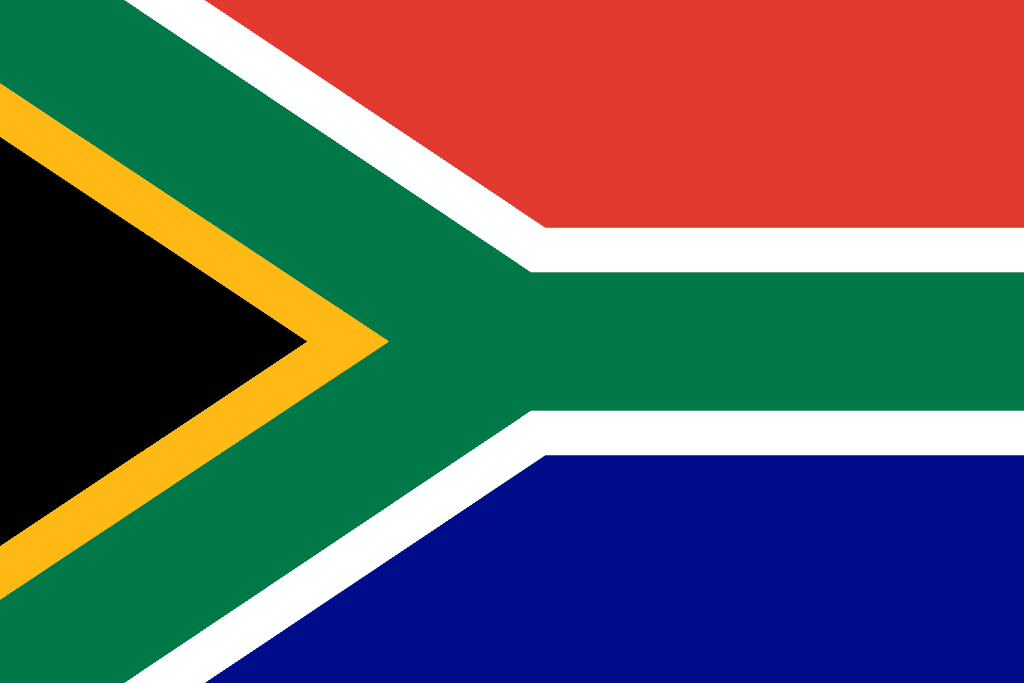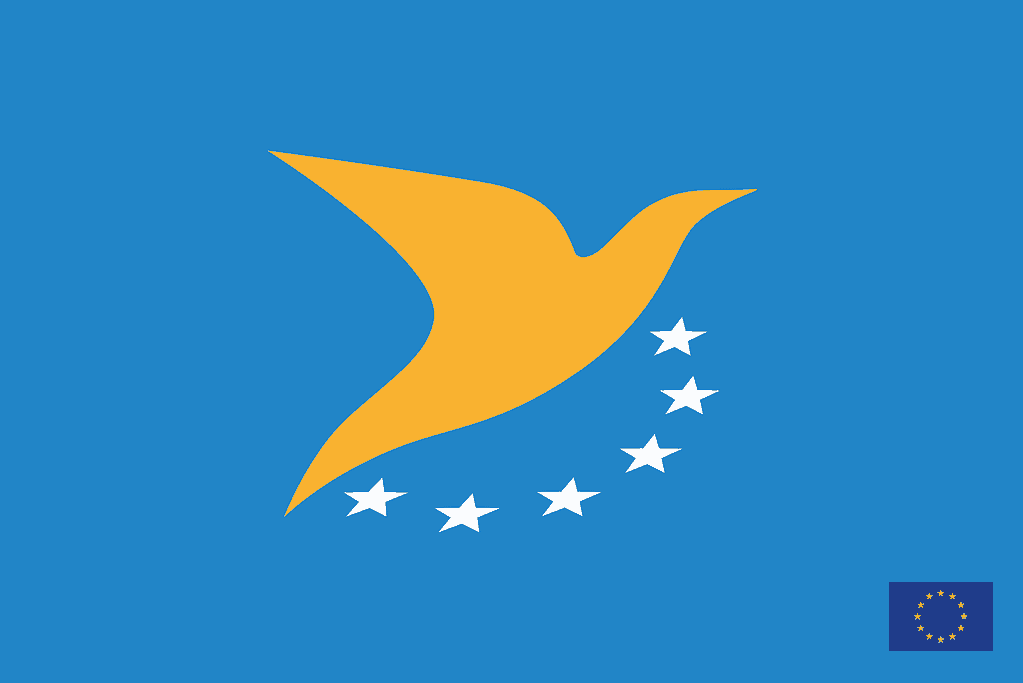Summary of Drone Laws in South Africa
Hobbyist Drone Laws For Residents of South Africa
Drone Operations in South Africa are currently regulated.
- Hobbyist drone flights are allowed in South Africa
- Hobbyist South Africa drone pilot license is required in some situations
- Hobbyist Drone registration is required in South Africa for hobbyists
- Drone Remote ID is not required in South Africa for hobbyists
- Drone Insurance is not required but recommended for hobbyists’ drone operations in South Africa
Read below for more details on Hobbyist Drone Laws in South Africa and to find links to regulators and other credible sources!
Commercial Drone Laws For Residents of South Africa
Drone Operations in South Africa are currently regulated.
- Commercial drone flights are allowed in South Africa
- Commercial South Africa drone pilot license is required
- Commercial Drone registration is required in South Africa for commercial drone operators
- Drone Remote ID is not required in South Africa for Commercial Drone Operators
- Drone Insurance is not required for commercial drone operations in South Africa
Read below for more details on Commercial Drone Laws in South Africa and to find links to regulators and other credible sources!
Drone Regulations For Visitors To South Africa
Drone Operations in South Africa are currently regulated.
- Foreign visitor drone flights are allowed in South Africa
- Foreign visitor drone pilot license is required
- Drone registration is required in South Africa for visitors/tourists
- Drone Remote ID is not required in South Africa for tourists
- Drone Insurance is not required but recommended for tourist drone operations in South Africa
Read below for more details on Drone Laws in South Africa for Visitors (Tourists) and to find links to regulators and other credible sources!
Drone Rules For Government Drone Operators in South Africa
Drone Operations in South Africa are currently regulated.
- Government drone flights are allowed in South Africa
- Government drone pilot license is required
- Drone registration is required in South Africa for Government operations
- Drone Remote ID is not required in South Africa for Government operations
- Drone Insurance is not required for Government drone operations in South Africa
Read below for more details on Drone Laws in South Africa for Government Drone Operations and to find links to regulators and other credible sources!
Agencies Responsible for regulating drones in the Republic of South Africa
Drone Regulator in South Africa: South African Civil Aviation Authority (SACAA)
UAS Laws – General rules for flying drones in South Africa
The South African agency responsible for drone safety, SACAA, has provided several internet-accessible details on flying for fun or work. The highlights are enumerated below. For more details, go to the link above.
Are drones allowed in South Africa?
According to the SACAA, flying drones is legal in South Africa, but certain regulations must be strictly followed. Read on for more details.
Here are the most important rules to know for flying a drone in South Africa:
For private use –
(a) The RPAS may only be used for an individual’s personal and private purposes where there is no commercial outcome, interest, or gain;
(b) The pilot must observe all statutory requirements relating to liability, privacy, and any other laws enforceable by any other authorities.
For all other uses –
(a) an RPA must be registered and may only be operated in terms of Part 101 of the South African Civil Aviation Regulations.
Do:
- Fly/operate Remotely Piloted Aircraft or toy aircraft safely at all times.
- Remotely Piloted Aircraft or toy aircraft should always remain within the visual line of sight.
- Fly/operate RPA in daylight and clear weather conditions.
- Inspect your aircraft before each flight.
The Don’ts
DO NOT, through act or omission, endanger the safety of another aircraft or person therein or any person or property through negligent flying/operation of Remotely Piloted Aircraft or toy aircraft.
Do not fly/operate Remotely Piloted Aircraft or toy aircraft 50 m or closer from:
- Any person or group of persons (like sports fields, road races, schools, social events, etc.)
- Any property without permission from the property owner.
Unless approved by the SACAA, DO NOT fly/operate Remotely Piloted Aircraft or toy aircraft:
- Near manned aircraft
- 10 km or closer to an aerodrome (airport, helipad, airfield)
- Weighing more than 7 kg
- In controlled airspace
- In restricted airspace
- In prohibited airspace.
Do not fly/operate Remotely Piloted Aircraft, or toy aircraft higher than 150 ft from the ground, unless approved by the Director of Civil Aviation of the SACAA.
Registration Requirements for Drone Flying in South Africa?
Per Part 101.02.4(1) of the Civil Aviation Regulations, 2011, No remotely piloted aircraft (RPA) shall be operated within the Republic of South Africa unless such RPA has been issued with a certificate of registration by the Director.
How to register RPA
Applicant should fill out the following form, depending on the intent:
- Form CA-47R1 – application for new registration of the RPA.
- Form CA-47R2 – for change of ownership.
- Form CA-47R3 – for deletion due to accident or export.
- Form CA-47R4 – amendment of C of R due to change of company name, change of address, or change of manufacturer’s name.
- Form CA-47R5 – for duplicate C of R due to being lost, stolen, damaged, or destroyed.
These forms may be obtained from the SACAA Airworthiness Forms page of the website (not always accessible).
Pilot Licensing Requirements for flying a drone in South Africa
Before applying with SACAA, you must obtain aviation training at an approved training organization (ATO).
Prior Requirements
Pilot Licences
The following requirements are compulsory.
- An applicant should not be less than 18 years of age
- Applicants must hold current medical assessments
- An ATO for training must be identified
- Foreign theoretical training will be approved and validated (ASK)
- Only successful completion will be accepted
- Applicants must pass the RPL practical assessment
- Applicants must also pass the Radiotelephony Examination
- Achieved English Language Proficiency (ELP) level 4 or higher.
- All applications must be submitted to the SACAA.
* See Part 101 Civil Aviation Regulations (CARs) and Civil Aviation Technical Standards (CATS) for a complete list of requirements
Instructor Ratings
- Remote Pilots will apply to the SACAA for Instructor Ratings.
- Remote Pilot Instructors will apply to the SACAA for Designation as Remote Pilot Examiners.
Credits
Prior learning will be recognized and applies to and including the following:
A person who holds or has held:
- A Pilot Licence.
- A military qualification equivalent to a license and rating; or
- An air traffic control license or a military qualification equivalent to an air traffic control license.
- Commercial air unmanned aircraft operations experience
Before making any application with SACAA, you will be required to obtain aviation training at an approved training organization (ATO).
The RPAS training course is provided by SACAA-approved training organizations that have basic RPAS Training on their Operators’ Certificate.
People with no aviation experience through to experienced aviators have the option of gaining a Remote Pilot Licence (RPL) that is focused entirely on the operation of a remotely piloted aircraft system (RPAS).
* RPAS training in South Africa is still in its infancy, as it is globally. The South African Civil Aviation Authority is working closely with the industry to develop the training standards, syllabus, and resources necessary for the industry to expand and grow professionally.
Upon completion
The course is competency-based and comprises a combination of theory and practical training. Upon completing the course, the provider will apply to SACAA for a Remote Pilot Licence (RPL).
Technical Guidance Material
View the TGM for Personnel Licensing by checking on the CAA website RPAS page (some documents are not always accessible)
RPAS Operations Versus Required Approval
| Required Approval | Commercial Operation | Corporate Operation | Non-profit Operation | Private Operation |
|---|---|---|---|---|
| Air Service Licence | Yes | N/A | N/A | N/A |
| RPAS Operators Certificate | Yes | Yes | Yes | N/A |
| RPAS Letter of Approval | Yes | Yes | Yes | N/A |
| Remote Pilot Licence | Yes | Yes | Yes | N/A |
| Certificate of Registration | Yes | Yes | Yes | N/A |
Notes for recreational drone pilots flying for fun in South Africa
Private operation – means the use of an RPA for an individual’s personal and private purposes where there is no commercial outcome, interest, or gain;
101.01.2 (1) Subject to sub-regulation (2), the provisions of Subparts 2, 3, 4, and 6 of this Part do not apply to the private operation of RPAS. We interpret this to mean that registration, licensing, and maintenance requirements (for commercial operators) do not apply to private operations within the scope allowed.
(2) Notwithstanding sub-regulation (1), the provisions of regulations 101.05.5(2); 101.05.8(1)(b), (c) and (d); 101.05.9(1)(a) and (b) do not apply to the private operation of RPAS.
(3) Private operations of RPAS shall be conducted only in R-VLOS with a Class 1A or 1B RPA.
Private operations are also exempted from Sub-regulations:101.05.21 – 25
Restricted visual line-of-sight* – means an operation within 500 m of the remote pilot and below the height of the highest obstacle within 300 m of the RPA, which the remote pilot maintains direct unaided visual contact with the RPA to manage its flight and meet separation and collision avoidance responsibilities;
- It is the full responsibility of the remote pilot of the RPAS to fly his/her aircraft safely and not endanger the safety of another aircraft, any person, or property.
- The remote pilot must observe all statutory requirements relating to liability, privacy, and any other laws enforceable by any other authorities.
1. Private operations of RPAS shall be conducted:
- only in R-VLOS
- with a Class 1A or 1B RPA (mass < 7 kg, Impact energy* < 15 kJ)
2. Do not fly RPA:
- Near manned aircraft
- 10 km or closer to an aerodrome (airport, helipad, or airfield)
- In controlled, restricted, or prohibited
3. Do not fly RPA 50m or closer from:
- Any person or group of persons (like sports fields, road races, stadiums, schools, social events, etc.)
- Public road
- Any property without permission from the property owner
4. Only fly RPA in daylight and clear weather conditions
Follow the general rules listed above, but check for updates by visiting the regulator’s links provided.
Notes for operating Commercial Drone Services in South Africa
Authorization and licensing is a complex process. Please check with the SACAA directly for specifics.
What you must know about South Africa No Fly Zones or No Drone Zones
You need to know if you can operate your drone. Under what limitations? Will you need flight authorizations? And, if so, how do you get those authorizations?
We encourage you to read our explainer. It provides more details here: Explainer – What You Must Know About No Fly Zones or No Drone Zones
No-fly zones
There are several no-fly zones in South Africa. As mentioned, you can’t fly a drone above or adjacent to military zones, aerodromes, airports, and helipads. Other no-fly zones include:
- a nuclear power plant
- a prison
- a police station
- a crime scene
- a court of law
- national key points
Drones can’t be flown in national parks and protected/conservation areas. This is because some visitors use drones to disturb or chase wild animals. Only drones used for wildlife conservation and research are allowed, subject to special permission.
Where are the no-fly zones in South Africa?
We have been unable to locate an official website from the regulator that shows the no-fly zones in South Africa. However, we have found a user-generated map highlighting user-experienced mapping of no-fly zones. Please see the map below. You can view it here or click to go to the source map.
Useful published information on flying drones in South Africa
Here is a sample of what you might expect if you follow the drone laws and fly in South Africa…
Authoritative Sources of Information on South Africa Drone Laws
We will attempt to keep an updated list of online authoritative links to regulators and other official websites here:
- Drone Regulator Website: South African Civil Aviation Authority (SACAA)
- Link To SUAS Laws: Aviation Regulations
- No Fly Zone Maps/Locations: N/A
- UAV Registration Site: N/A
- Drone Operator Licensing Site: N/A
- Others: N/A
NOTE: This page is about the Regulation of Unmanned Aerial Vehicles: Small Unmanned Aerial Systems (SUAS), Small UAS, Remote Piloted Aerial Systems (RPAS), unmanned aerial vehicle (UAV), Unmanned Aerial System (UAS), and drone are interchangeable terms unless specified. Model Aircraft, toy, remote-controlled, and RC aircraft may be covered by the same regulations unless specified.
Find out why
We think you must use a Drone Preflight Checklist
And a Drone Post-flight checklist
Free Drone Flight Checklist PDF
This Drone Flight Checklist is better than others.
It’s free!
It includes both the preflight checklist and post-flight checklist
It’s an easy-to-use printable PDF that covers all your bases.
Traveling with a Drone?
Click here to read our Comprehensive Guide For Traveling With A Drone.
NOW IT’S YOUR TURN



Leave a Comment